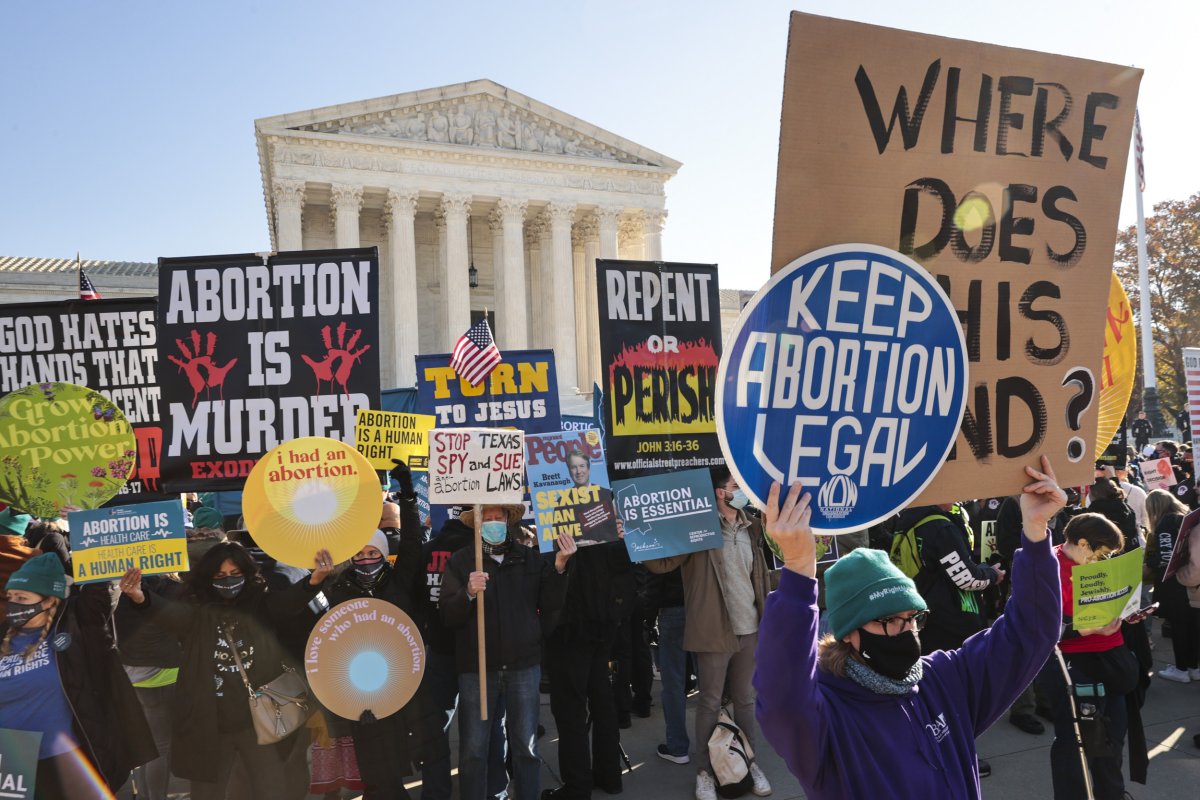The U.S. Supreme Court is considering challenges to two major abortion bans in the states of Texas and Mississippi and the nine justices' rulings will have a profound impact on the future of abortion access in the United States.
Though the outcome of the cases before the Court will be crucial for abortion rights, Americans could be waiting for some time before its opinions are issued - and it may not be this year.
The Court is considering a direct challenge to the landmark precedent established in 1973's Roe v. Wade after the justices this week heard oral arguments in Dobbs v. Jackson Women's Health Organization, which pertains to Mississippi's near total ban on abortions after 15 weeks of pregnancy.
Also before the Court are two challenges to Texas' controversial six-week abortion ban, which features a novel enforcement mechanism that doesn't involve state officials.
Those cases are United States v. Texas and Whole Woman's Health v. Jackson.
In Dobbs, the Court has the option to throw out the precedent established in Roe and find that the U.S. Constitution doesn't guarantee the right to abortion. The justices could also affirm Roe's precedent or seek a third way, permitting restrictions on abortion earlier in pregnancies.
In the Texas cases, the Court will decide if a widely criticized system of enforcement through private citizens' lawsuits is permissible and compatible with Roe - if Roe's precedent is intact when the Court makes its views known.
It remains to be seen when the American public will be informed of the Court's rulings, however. The Court generally issues opinions before the end of term, which is not a fixed date, but comes around the end of June or early July, and the justices are under no obligation to expedite their decision making.
The final opinions of the 2020/2021 term were handed down on July 1, 2021, and a per curiam opinion - a ruling ascribed to the court that isn't given a specific justice as author - was issued on August 26.
The justices issued their first opinion of the 2021/2022 term on Monday, November 22 and the announcement led to speculation that they would quickly rule on challenges to the Texas abortion law as oral arguments had taken place on November 1.
However, the opinion issued on that day related to a groundwater dispute between Tennessee and Mississippi.
The Supreme Court keeps track of opinion issuance days on a calendar available on the home page of its website, where those days are marked in yellow. No further opinion issuance days were on that calendar as of Friday morning, though this is subject to change.
Opinion issuance days shouldn't be confused with order list issuance days, marked in light blue on the Court's online calendar. Those orders most commonly involve granting or denying a review of cases. Following oral arguments, the justices consider cases on conference days, marked in green on the calendar.
Friday, December 3 is a conference day, as it next Friday, December 10. There are no further conference days scheduled until January 7.
Dissenting Opinions
A majority of the justices must agree to the contents of the Court's opinion before it is issued to the public. Whatever the outcome of these three cases, there will almost certainly be dissenting opinions from the minority.
There is also no obligation on the Court to decide a particular case within the given term. It is possible for the justices to order a case to be reargued in the following term, but this isn't common practice.
The Court may essentially issue opinions on the three abortion cases at any time, though the practicalities of deciding major legal and constitutional questions mean decisions aren't likely to come any time soon.

Uncommon Knowledge
Newsweek is committed to challenging conventional wisdom and finding connections in the search for common ground.
Newsweek is committed to challenging conventional wisdom and finding connections in the search for common ground.
About the writer
Darragh Roche is a U.S. News Reporter based in Limerick, Ireland. His focus is reporting on U.S. politics. He has ... Read more
To read how Newsweek uses AI as a newsroom tool, Click here.








